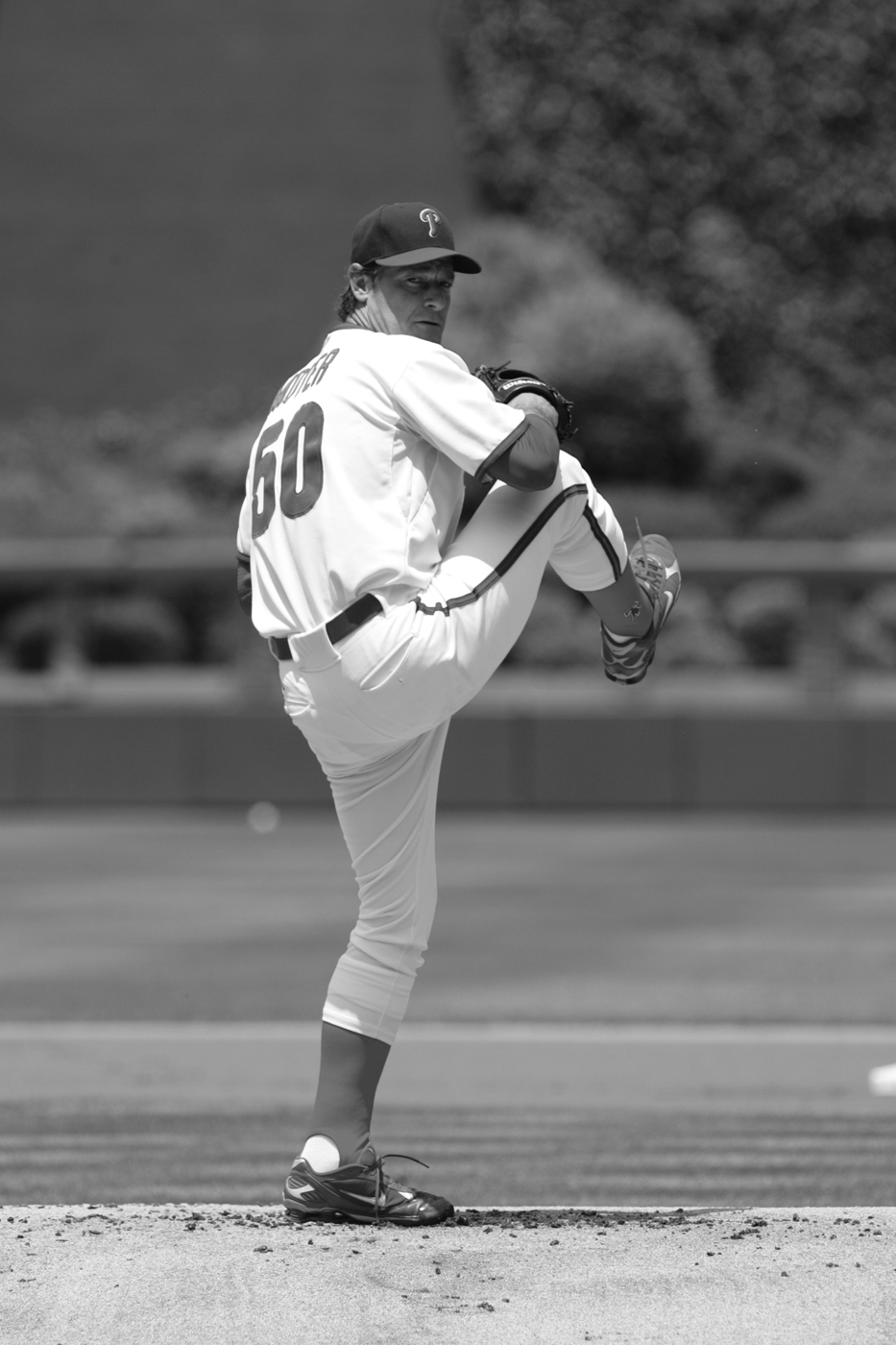


(PHILADELPHIA) — It was November 1990, and a cub reporter who was covering local sports for a suburban weekly was searching for a project to fill the void between an early end to the fall season and the start of winter sports.
Then the Los Angeles Dodgers signed free-agent outfielder Darryl Strawberry to a then-unheard-of sum of $22.25 million to be paid over five years. Major league salaries were going through the roof. The minimum in 1990 was $100,000 — up from $68,000 the previous year.
Thus the seed was planted for what became a four-part series, published in December of that year, about the financial state of baseball. Players from across the spectrum of professional ball were interviewed — from 18-year-olds with one summer of rookie-league play under their belts to a three-time National League all-star (Del Ennis) and the 1952 American League MVP (Bobby Shantz), both long retired from the game.
Included in the middle of that pack were some local players who were between teams in their sputtering major-league careers.
Left-handed pitcher Jamie Moyer, who was drafted out of St. Joseph's University in 1984, had a 34-49 career record after five years with the Chicago Cubs (1986-88) and Texas Rangers (1989-90). He had just been released by Texas and would continue a downward slide with the St. Louis Cardinals, for whom he was 0-5 in seven starts in 1991, and was banished to the minor leagues for two years.
But the 28-year-old Moyer was determined to press on at the time. When shown a copy of the 1990 stories recently, the pitcher chuckled and read aloud one of his quotes.
"Until I feel that I can't compete at this level, I'll continue to play," Moyer said in 1990. "I realize that it's not something that I'll do for the rest of my life, but I'm going to make the best of it while I can. I don't know what's ahead, but I don't think that I can find another job in the future that I enjoy as much as baseball."
That determination enabled the lefty to develop another pitch, which helped him return to the big leagues and achieve success that he couldn't have imagined in 1990.
Still pitching at age 45, Moyer finished the 2008 regular season with a 16-7 record and a 3.71 earned-run average in 33 starts for the Philadelphia Phillies. Since July 5, Moyer had gone 9-1 with a 3.28 ERA over his last 16 starts, and the Phillies were 12-4 in that span.
Philadelphia won the best-of-five games division series, 3-1, over the Milwaukee Brewers on Sunday, with Moyer taking the lone loss in Saturday's game, and will open the National League Championship Series with the Los Angeles Dodgers on Thursday. Cole Hamels and Brett Myers are slated to pitch the first two games in Philadelphia on Thursday and Friday, respectively, and Moyer will start game three in Los Angeles on Sunday.
Getting back to the 1990 stories about the rise of salaries in the major leagues, Moyer had no shortage of opinions.
"So many things have changed since we talked eighteen years ago," the pitcher reminisced. "I think (baseball) has become more of a corporate type of business. How many ballparks have been built in the last eighteen years, and how many different types of ballparks (are there)? They're all different sizes, and they have more skyboxes, and the fans are closer to the field. All of these things were done to make things more fan-friendly.
"Plus, costs have increased, (and) salaries have increased. Across the board, everything has increased. Until the fans decide that they don't want to pay the price of a ticket, it's going to continue."
The pitcher then compared baseball to other businesses.
"If you owned a meat-packing company and you got so many dollars for your products, you wouldn't have to raise your prices, but if you don't meet your expenses one year, you're going to have to increase prices," Moyer said.
"These days, you can follow baseball games on a computer from anywhere in the world, and you can still feel that you're a part of the game. And this computer revenue brings in more money for baseball. Where all of this stops, I don't know."
The conversation on the financial status of baseball was eerily similar to the one we had in 1990. What was different was the status of the pitcher. Eighteen years ago, he was struggling just to stay in baseball. While pitching in the minor leagues from 1991 to '93, he developed an out pitch that turned his career around.
"It was a cut fastball," said Moyer. "I don't know if it was an out pitch, but it was definitely one that helped me move forward."
And move forward he did. Since his return to the majors with Baltimore in 1993, the pitcher has collected another 212 wins, all after turning 30. His 246 career victories places him fifth on the list of wins for active pitchers and 11th on the list of all-time wins for left-handed hurlers.
As for the money, the Web site www.baseball-reference.com lists his salary at $340,000 in 1990 and $6.5 million in 2007. That's quite a jump in salary.
"You can have the money," Moyer said. "It's the experience (that matters). I've had lots of experiences — both good and bad — and I've had a lot of great times with some great players over the years.
"I was with Baltimore in 1995 when Cal Ripken broke Lou Gehrig's record (for most consecutive games played), and I was part of a team that set a record for most wins in (an American League) season."
The Seattle Mariners, for whom Moyer played the bulk of his career, won 116 games in 2001 to set a new American League record. The Cubs also won 116 games in 1906.
"And I played with Andre Dawson when he won an MVP award (with Chicago in 1987)," Moyer continued. "He wanted out of Montreal because he wanted to get off of the (artificial) turf (at Olympic Stadium), and he said that he'd sign a blank contract to play (on natural grass) in Chicago. Then he went out and had an MVP season.
"(In baseball) you win as a team. In Seattle, we won (116 games) as a team. Toward the end (of my time with the Mariners), we weren't winning much, so that part wasn't fun, but still, you live with your teammates for eight months of the year, and that's something special. I feel very fortunate to still be a part of this game."
© 2008 www.Bill-McFarland.com
Visit the Phillies Web site.